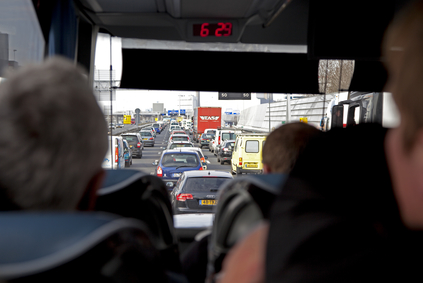Dutch to push for EU-wide rules for self-driving cars

Dutch infrastructure minister Melanie Schultz is hoping to reach a deal with her European counterparts on standard rules for self-driving cars.
Next week’s meeting of transport ministers in Amsterdam will mark the start of efforts to draw up cross-border rules to deal with technologies such as adaptive cruise control, lane-keeping assistance systems and blind spot monitoring.
‘The treaty of Vienna dates from 1968 and states a driver must always have control over his vehicle or – and you can see how outdated it is – his animals,’ Schultz told car magazine Autoweek. ‘We need to make new agreements.’
‘We need to see how quickly we can do this and how we are going to harmonise the rules,’ Schultz said. ‘And I want my colleagues who are not active in this – and there are a lot of them – to see the advantages of self-driving systems.’
Schultz has made self-driving cars a key part of her transport policy and wants the Netherlands to play a leading role in developments.
Steering wheel
In January, trials of the driverless WEpod shuttle buses began in Wageningen on the university campus roads. The buses, which have no steering wheel or pedals, are electric and have a maximum speed of 25 kph.
If the campus trials are a success, in June the shuttles will begin to use public roads, travelling a pre-programmed route between Bennekom and the Ede-Wageningen railway station.
Schultz told Autoweek unified agreements are crucial in a single market. ‘It would be extremely irritating to have to reset the self-driving features in your car every time you cross the border,’ she said.
Thank you for donating to DutchNews.nl.
We could not provide the Dutch News service, and keep it free of charge, without the generous support of our readers. Your donations allow us to report on issues you tell us matter, and provide you with a summary of the most important Dutch news each day.
Make a donation